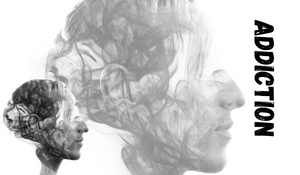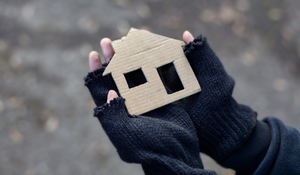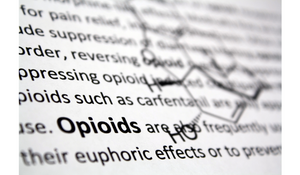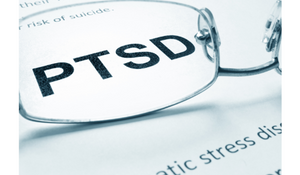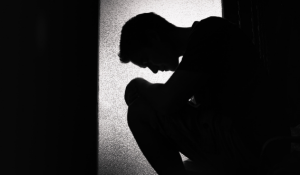Joan began her career in the helping professions as a nurse in small town New England. A critical shortage of obstetric facilities and practitioners motivated her to specialize as a midwife eventually opening a private practice that thrived for many years. But vulnerable populations pressed in from all sides, and Joan went back to school to get her MSW, enabling her, as she saw it, to respond to need wherever she found it. A few years later she returned to school again to become a Nurse Practitioner and work in the field of behavioral health.
Topics: mental health, case management software, healthcare
The entire civilized world is suffering from a form of collective PTSD. Social workers report being overwhelmed with cases of alcoholism, drug addiction, anxiety, divorce, depression, and suicide. The Center for Disease Control and Prevention says: "Suicide rates in the United States are often the result of circumstances beyond the individual's control. People who die by suicide report an unshakeable feeling of dread, despair, loneliness, and hopelessness."
Topics: mental health, Covid-19/Pandemic
The American Society of Addiction Medicine recognizes addiction as “a treatable, chronic medical disease involving complex interactions among brain circuits, genetics, the environment, and an individual’s life experiences. People with addiction use substances or engage in behaviors that become compulsive and often continue despite harmful consequences.”
Topics: mental health, criminal justice, social justice
In Their Own Words Social Workers Reflect on the Pandemic's Fatal Blow
(Excerpted from an article by Paul Moakley in Time Magazine, "Deaths Amoung America's Homeless Are Soaring in the Pandemic. A Photographer Captures a Community In Crisis")
Topics: Homeless & Food Pantry, mental health, social issues, Covid-19/Pandemic
COVID-19 and Mental Health-The Role of Social Services Organizations
It’s been estimated that globally, around 76 million people have been diagnosed with anxiety disorders due to the pandemic. Many of these people were healthy individuals with no previously diagnosed mental health issues. Others were already diagnosed with mental health issues, but the virus served as a trigger for their disorders and made them worse.
Nonetheless, social workers across the US have played an important role in ensuring that people suffering from mental health issues during the pandemic have the necessary psychological support to survive the pandemic.
Topics: mental health, human services software, Covid-19/Pandemic
Nearly 500,000 people died from opioid overdoses from 1999-2019. This epidemic of opioid overdose deaths can be outlined in three distinct waves.
- The first wave began with increased prescribing of opioids in the 1990s, with overdose deaths involving prescription opioids (natural and semi-synthetic opioids and methadone) increasing since at least 1999.
- The second wave began in 2010, with rapid increases in overdose deaths involving heroin.
- The third wave began in 2013, with significant increases in overdose deaths involving synthetic opioids, particularly those involving illicitly manufactured fentanyl. More than 14,000 deaths involving illicitly manufactured synthetics occurred in 2019, which is equivalent to about 38 deaths per day.
Topics: mental health, social workers, Covid-19/Pandemic
12 Step peer support programs are based on the idea, originally formed by the AA movement in the late 1930s, that addiction is a progressive, incurable disease lessened only by undergoing spiritual transformation and abstaining from alcohol or any addictive substance or behavior (e.g., Narconon - Gamblers Anonymous).
PTSD is a disorder in which a person has difficulty recovering after experiencing or witnessing a terrifying event. The condition may last months or years, with triggers that can bring back memories of the trauma accompanied by intense emotional and physical reactions.
Topics: Veterans Issues, mental health, what social workers do
Social workers Dre’ Johnson and Renee Brean are part of a pioneering new approach to policing in Rochester, New York. They belong to the city's “person in crisis” team – a unit of mental health and behavioral professionals who attend police calls where a person may be suffering a mental health episode.
The premise behind the "person in crisis" team is simple: it contends that for all their training and skills, police are not equipped to deal with the complexities that a mental health crisis requires. By sending mental health professionals along to 911 calls that may involve potential psychological breakdowns, officials hope that these situations can be dealt with more sensitively, and more safely.
Topics: Homeless & Food Pantry, mental health, social workers, what social workers do
With the popularity of CSI shows, the word "forensic" has wormed its way into our everyday conversations. No one, however, seems to know what it means. "Forensic social work", therefore, is an even deeper mystery. We decided to ask a real "forensic social worker" exactly what forensic social workers do. Here's what she told us.
Topics: Social Services Industry News, mental health, social workers, what social workers do



